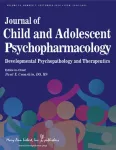(Press-News.org)
Researchers found that a medicine called ferric carboxymaltose given in drip through the vein works faster and better than an iron tablet taken by mouth for the treatment of anaemia – and it is as safe as the tablet. The findings were published in Lancet Global Health.
Anaemia (low blood level) is a common cause of ill-health or death in mothers and their babies, especially in sub-Saharan Africa and South-East Asia where more than four out of ten pregnant women have the condition. A sizeable proportion of pregnant women in Nigeria proceed to giving birth while still anaemic despite taking iron tablet for prevention during pregnancy. Some reasons for this are that some women do not tolerate the tablets because of side effects like diarrhoea, nausea, or vomiting, or they forget to take the tablets. Available iron preparations given through drip in Nigeria like iron dextran have been associated with high risk of severe side effect, while iron sucrose needs repeat dosing. There is a need for an effective and safer alternative to overcome these problems.
A team of researchers in a recently concluded clinical trial, called the IVON TRIAL, tested a medicine for treating anaemia (low blood level), called ferric carboxymaltose, which is new in Nigeria and most of sub-Saharan Africa.
They compared the effectiveness and safety of this medicine with that of a popular tablet, called ferrous sulphate, which is currently being used to treat anaemia in Nigeria. They found that this new medicine given in drip (continuous fluid) through the vein works faster and better than iron tablets taken by mouth for treatment of anaemia; and it is as safe as the tablet.
The study enrolled 1,056 pregnant women, aged 15 – 49 years, who were between five and seven-and-half months pregnant and had anaemia with haemoglobin (red blood level) measurement less than 10 g/dl.
“We used a web-based platform to assign them to treatment groups. Half of the women were treated with one dose of iron given in drip through the vein while half took iron tablets three times a day till they gave birth”, says Ochuwa A. Babah, a doctoral student at Department of Global Public Health, Karolinska Institutet and one of the authors of the paper.
Their haemoglobin levels and iron levels were checked, and they were screened for depression at specific time points. They were followed-up until six weeks after delivery to collect more data from mother and baby. Blood was collected from the baby’s cord at delivery to know if the medicine affected the baby’s phosphate level.
Only one dose of iron (ferric carboxymaltose) given by drip through a vein during pregnancy causes a faster rise in blood level after four weeks compared to iron tablet taken by mouth three times every day. The drip iron also corrects low body iron better than iron tablets. The side effects of the drip iron are comparable to that with iron tablets, with no adverse effect on the babies.
“These findings are reassuring because pregnant women often reject new medicines because of fear of harm to their babies. We now have evidence that implementing the use of this new drip iron (ferric carboxymaltose) in regions where many pregnant women suffer anaemia like Africa, will be a valuable step towards reducing the proportion of pregnant women who suffer from this condition and its complications”, says Ochuwa A. Babah and continues:
“The pregnant women were willing to accept the drip iron during pregnancy, supported by their families. The healthcare workers were ready to administer drip iron but identified a need to increase staff strength and possibly medicine subsidy. We know from the clinical trial that the drip iron is effective and safe, so we are already liaising with the Federal Ministry of Health, Nigeria to add it to the essential drug list.”
The study was a collaboration between the University of Lagos, Nigeria and Karolinska Institutet, Sweden. Other collaborating institutions were Bayero University, Kano State, Nigeria; Institute of Tropical Medicine, Antwerp, Belgium; Nottingham University, United Kingdom; London School of Hygiene and Tropical Medicine, United Kingdom. University of Minnesota Medical School, Minneapolis, Minnesota, USA; and Harvard T.H. Chan School of Public Health, Boston, Massachusetts, USA. The study was funded by Bill & Melinda Gates Foundation.
Publication: “Intravenous versus oral iron for anaemia among pregnant Nigerian women (IVON): an open label randomised controlled trial”, Bosede B. Afolabi, Ochuwa A. Babah, Titilope A. Adeyemo, Mobolanle Balogun, Aduragbemi Banke-Thomas, Ajibola I. Abioye, Opeyemi R. Akinajo, Hadiza S. Galadanci, Rachel A. Quao, Hameed Adelabu, Nadia A. Sam-Agudu, Victoria O. Adaramoye, Abdulazeez Abubakar, Bolanle Banigbe, Gbenga Olorunfemi, Lenka Beňová, Elin C. Larsson, Kristi S. Annerstedt, Claudia Hanson, Jim Thornton and the IVON TRIAL Investigators, Lancet Global Health, online September 18, 2024, doi: xx
END
Between 1990 and 2021, the number of people who had a new stroke (up by 70%), died from a stroke (up by 44%), and stroke-related health loss (up by 32%), has risen substantially worldwide.
Stroke is highly preventable, with 84% of the stroke burden in 2021 attributable to 23 modifiable risk factors, including air pollution, excess body weight, high blood pressure, smoking, and physical inactivity—presenting a public health challenge and an opportunity for action.
Notably, the contribution of high temperatures to poor health and early death due to stroke has ...
A new study in the peer-reviewed Journal of Child and Adolescent Psychopharmacology estimated the incidence of neuroleptic malignant syndrome (NMS), a potentially fatal adverse effect of antipsychotic treatment, among individuals ages 5-24 years. Click here to read the article now.
Wayne Ray, PhD, from the Vanderbilt University School of Medicine, and coauthors, used national Medicaid data from 2004-2013 to identify patients beginning antipsychotic treatment and calculated the incidence of NMS during antipsychotic use. The investigators identified five ...
Cyclists choosing a new helmet can see how much protection different helmets offer, thanks to new safety testing and ratings from Imperial College London.
Researchers at Imperial College London have developed a simple new cycle helmet safety rating system with simple-to-understand scores from 0-5, designed to help buyers select which helmet to buy and assist manufacturers in future helmet design. The system is based on extensive new safety testing experiments on medium-sized helmets at Imperial.
Testing on the UK’s 30 most popular helmets, funded by The Road Safety Trust, revealed significant ...
Pupils with special educational needs and disabilities (SEND) are continuing to fall behind their peers with the gap widening despite the introduction of SEND legislation.
This is according to a new study by Durham University which analysed data on 2.5 million Year 6 pupils across four school years from 2014-2019.
The research suggests there is a need to re-evaluate the policies for SEND provision and how pupils with SEND are supported in schools.
It calls for more investment to support SEND pupils and for increased professional development for teachers and teaching assistants.
Using ...
Half of heavier drinkers say calorie labels on alcohol would lead to a change in their drinking habits
Just over half of heavier drinkers in England say they would make changes to their drinking if calorie labels for alcohol were introduced, according to a new study by UCL researchers.
The findings, the researchers said, suggested calorie labels could help some drinkers maintain a healthier weight.
The study, published in the journal BMJ Open, looked at survey responses from 4,683 adults in England to assess the impact that alcohol calorie labelling might have on people’s attitudes and drinking ...
LAWRENCE – Xiaobo Quan is proud that his study is the first of its kind to link operating room design to the length of knee- and hip-replacement surgeries.
Thus, the University of Kansas School of Architecture & Design associate professor believes its findings can be used to optimize spaces that will both produce better outcomes, via shorter surgeries, for patients and boost the hospital’s bottom line.
For the article “Can Operating Room Design Make Orthopedic Surgeries Shorter, Safer, and More Efficient?: A Quasi-Experimental Study,” ---------- link to: https://doi.org/10.1177/19375867241254529 --------- in the journal Health Environments Research & Design, ...
A study has revealed significant therapeutic inertia in the treatment of women with multiple sclerosis (MS), highlighting gender disparities that could impact long-term health outcomes for women of childbearing age.1
The findings, presented today at ECTRIMS 2024, suggest that concerns related to pregnancy may lead to delayed or reduced use of disease-modifying treatments (DMTs), even before pregnancy becomes a consideration.
In an extensive analysis of 22,657 patients with relapsing MS (74.2% women) who were on the French ...
With publicly funded correlative science in the nation’s Cancer Cooperative Groups reduced to a trickle, Group leaders propose implementing a long-standing National Academy of Medicine recommendation to bring new money to this area of research through public-private partnerships. They also recommend major process changes to remove significant barriers for researchers to access the biological samples contributed by patients. The current Journal of Clinical Oncology issue features ‘Correlative Science in the Cooperative Group System—Re-Engineering for Success.’
This Position Paper represents consensus among Evanthia Galanis, MD, DSc for the Alliance for Clinical ...
Kashif Nawaz, distinguished researcher and section head for Building Technologies Research at the Department of Energy’s Oak Ridge National Laboratory, has been named a Fellow of the American Society of Mechanical Engineers, or ASME. The Fellow grade recognizes outstanding engineering achievements for members with 10 or more years of active practice.
Nawaz joined ORNL in 2016 as a research scientist in buildings equipment. He specializes in the heating, cooling and dehumidification systems of buildings including the development of novel heat exchangers and enhanced phase-change material ...
U2opia Technology has licensed Situ and Heartbeat, a package of technologies from the Department of Energy’s Oak Ridge National Laboratory that offers a new method for advanced cybersecurity monitoring in real time. Situ, which discovers and understands otherwise-undetectable events by analyzing security data, will go to the market through a commercial license. The company will continue to explore opportunities for Heartbeat, which detects cyber attacks by focusing on the physical behavior of a protected device, through a research and development license.
U2opia Technology, a woman- and minority- led company, is directed by Maurice Singleton III, chief executive officer, ...


